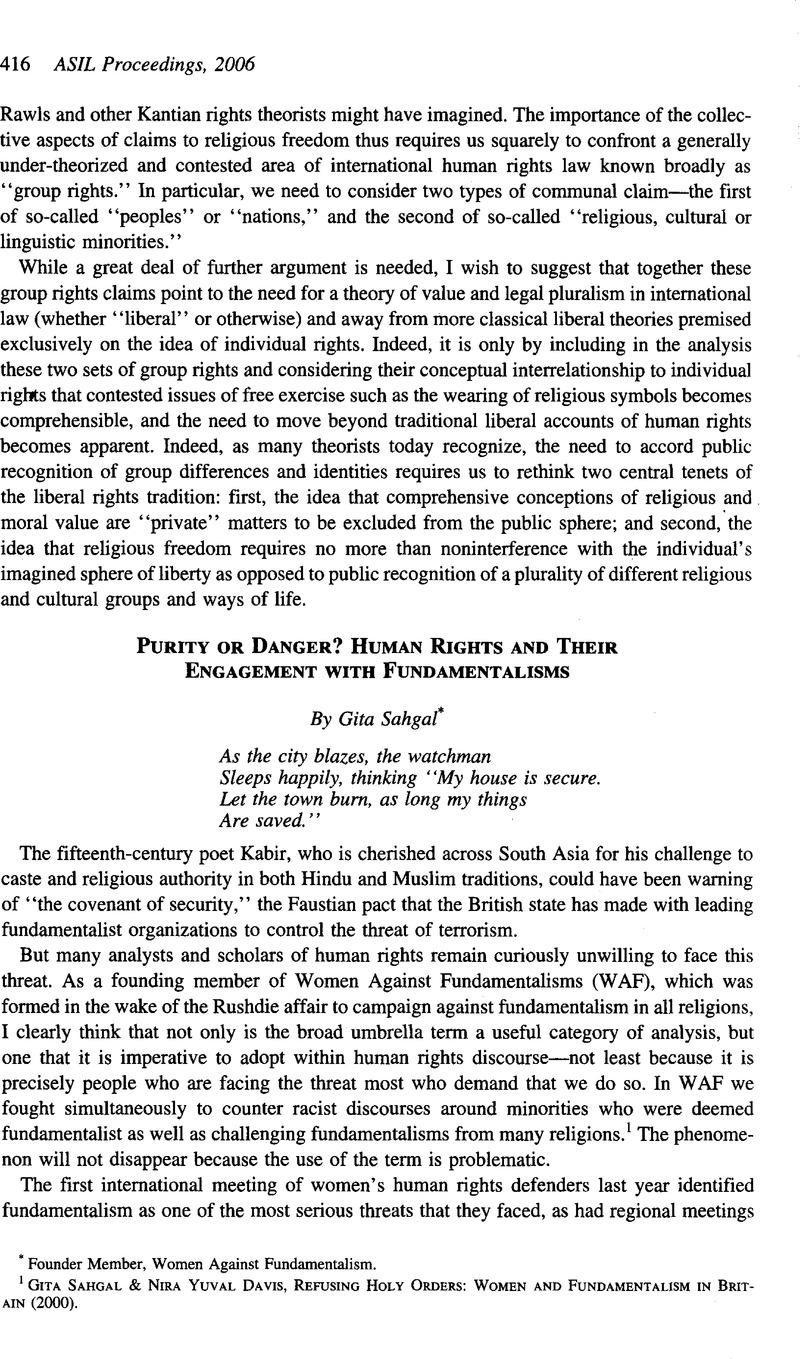No CrossRef data available.
Published online by Cambridge University Press: 28 February 2017

1 Gita Sahgal & Nira Yuval Davis, Refusing Holy Orders: Women and Fundamentalism in Britain (2000).
2 “Fundamentalisms and Human Rights,” Center for Rights and Democracy, Montreal (May 2005).
3 Eric. J. Hobsbawm, Nations and Nationalism Since 1780 (1990).
4 See Waf Journals at <http://waf.gn.apc.org>.
5 Chetan Bhatt, Liberation and Purity: Race, New Religious Movements and the Ethics of Postmoderna (1997).
6 Fundamentalist movements based on religious affiliation can be compared to political projects that harness ethnic or national identities in pursuit of the politics of purity.
7 Hossain, Sara, “Apostates,” Ahmadis and Advocates: Use and Abuse of Offences Against Religionin Bangladesh, in Warning Signs of Fundamentalisms (Imam, Ayesha, Morgan, Jenny & Davis, Nira Yuval eds., 2004)Google Scholar.
8 See cable from U.S. Consul General, Dacca, East Pakistan, to Secretary of State Henry Kissinger (Apr. 6, 1971), which argued that “genocide was applicable” (quoted in Lawrence Lifshultz, Bangladesh, The Unfinished Revolution (1979)). The cable was signed by twenty U.S. diplomats in Pakistan and nine South Asia hands in the State Department.
9 Concerned Citizens Tribunal, Crimes Against Humanity: An Inquiry Into the Carnage in Gujarat (Anil Dharkar for Citizens for Justice and Peace, Mumbai (2002)).
10 Threatened Existence: A Feminist Analysis of the Genocide in Gujarat, International Initiative for Justice (Dec. 2003), available at <http://www.onlinevolunteers.org/gujarat/reports/iijg/2003>>.
11 See the Foreign Exchange of Hate: IDRF and American Funding of Hindutva and In Bad Faith: British Charity and Hindu Extremism, at <http://www.awaazsaw.org>.
12 Floya Anthias & Nira Yuval Davis, Racialized Boundaries (1993).